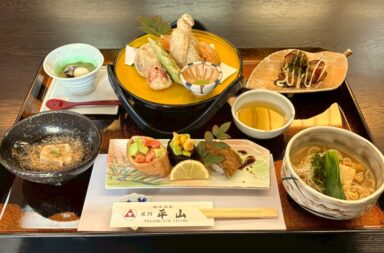This post is also available in: 日本語
Hello.
I’m Yamazaki, the representative of Plant-Based Japan Inc. We are developing our business with the mission of “connecting Japan and the world through plant-based food”.
According to a survey by the Japan Tourism Agency (April 2020), the world’s vegetarian population has reached 630 million as of 2018, and the average annual growth rate of the market is expected to be 11.9% between 2020 and 2027. It is projected to grow to 7.42 trillion yen (Research and Markets).
Right now, the global plant-based market is experiencing rapid growth.
This time, there will be three of the top pioneers in the global plant-based industry. They talked about the themes of “World Trends” and “Proposals for Japan.”

Zoom Interveiw with Green Monday CEO David Yeung
Plant-Based Market Continues To Grow At Exponential Speed
“Looking back over the last 30 years, the changes over the last five years have been remarkable.”

HappyCow CEO Eric Brent
Said by Eric Brent, who runs the world’s largest vegan restaurant search service, HappyCow.
Looking at the growth trends of vegan venues (vegan restaurants, cafes, hotels, etc.) on HappyCow, it has been proliferating since 2016. We were worried about the impact of the corona, but it indicates that it has continued to expand steadily even after 2020.
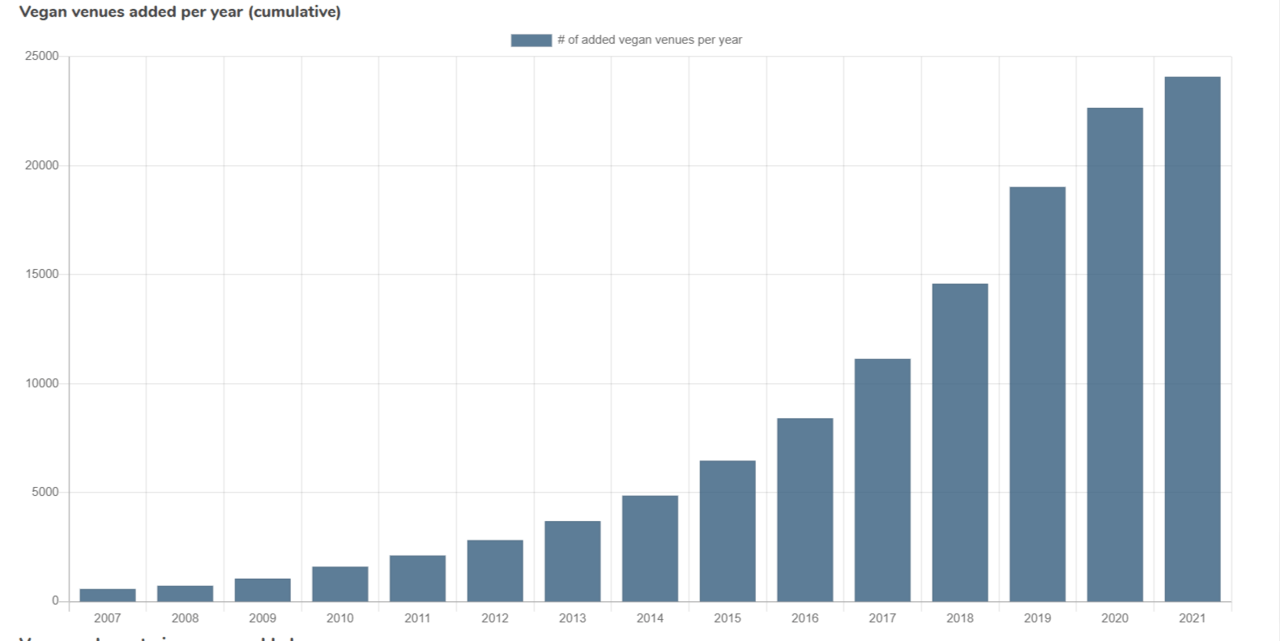
Data created on 12th of May, 2021
“At the beginning, people said, “who would read a vegan business magazine? “
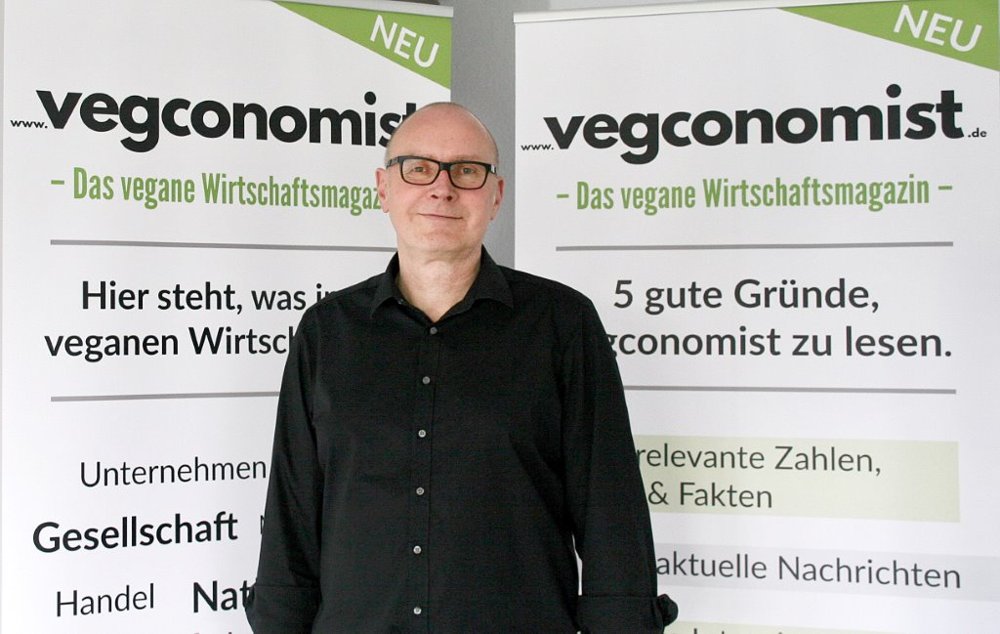
vegconomist CEO Peter Link
vegconomist is a German startup company born in 2018. They publish information on the global plant-based market in five languages, French, Spanish and Chinese, besides German and English.
According to Peter, when the company was first established, the reaction was, “who would read the vegan business magazine?” However, we saw the changes after the pandemic in 2020.
“Product launches from major companies are occurring one after another in the pandemic, and requests for advertorials are flooding.”
“Hong Kong now has plant-based options wherever you go.”

Green Monday CEO David Yeung
“Macdonald, Starbucks, Seven-Eleven, everywhere we go, there are plant-based options,” said David Yeung, CEO of Hong Kong-based startup, Green Monday.
He said Hong Kong’s flexitarian ratio was only 5% in 2008 but expanded to 40% in 2021.
“The movement started in Europe and the United States, but this trend has come to Hong Kong and Singapore. It will definitely come into Japan,” David said in an interview, and he looks forward to the future growth of the Japanese market. (Reference article: March 2021, “Green Monday announces full-scale entry into the Japanese market”)
Education And Solution Behind The Significant Changes
According to HappyCow Eric, the spread of “Education” and “Solution” is indispensable in discussing the changes over the past five years.
A big break in documentaries on YouTube and Netflix has happened, introducing the issues of livestock, the environment and health.

The Game Changers

Cowspiracy
Among them, “The Game Changers” and “Cowspiracy” significantly impacted society worldwide, and plant-based awareness spread in a blink of an eye.
Eric also says the birth of alternative food brands such as Beyond Meat and Impossible Foods is also a leading factor. These companies have partnered with global brands such as Burger King and KFC to make plant-based an ordinary choice.
“The impact created by Beyond’s IPO was enormous. Through listing on the stock market, they have proved the plant-based marketability to the world.”
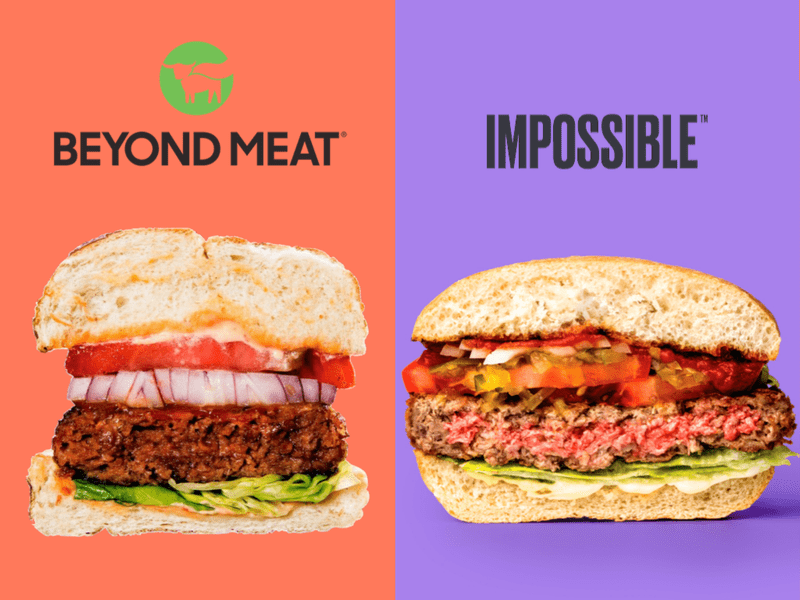
According to David from Green Monday, the importance of “Education + Solution” is equally valued in Asia.
The company established an NPO called Green Monday in 2012 and started with an initiative to advocate “Go plant-based lifestyle from once a week.”
It resonates among people from the entertainment industry to school. The result of continuing vigorous enlightenment activities may have created a “40% flexitarian society.”


Through the interview, I learned that being able to provide options (Solution) in addition to advocacy (Education) was a primary success factor. There is no doubt that the birth of the plant-based foodservice and retail complex “Green Common” and the alternative meat brand “OmniMeat” operated by the company has triggered the plant-based market in Hong Kong.
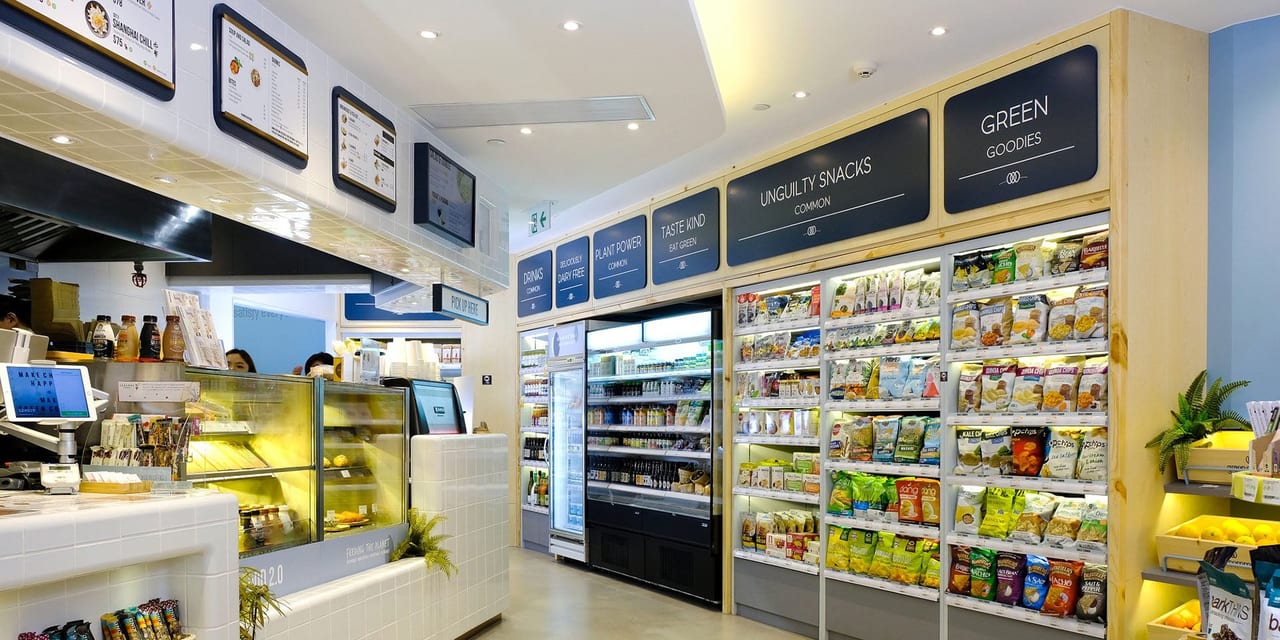

Advice From Front Runners Of The Plant-Based Industry To Japan
Sufficient support from the public sector
Mr. Peter from vegconomist:

“I’ve heard information that the Japan Tourism Agency and JETRO are conducting research on plant-based markets, but I suppose it would be better to strengthen more support from these governmental institutions. For example, in Canada, the government has invested around $100 million into plant-based industry funds and also provides legal consultation support for plant-based businesses. There are only a limited number of countries that are moving like Canada. Japan should take the lead before other countries move.”
Review marketing strategy
Mr. Eric from HappyCow:
“Ideally, vegan businesses should work towards having more than 80% of r their customers being non-vegan. In many cases, depending on the region, it’s often best to avoid use of the word vegan when marketing. As an example, Veggie Grill (a US-based vegan restaurant chain) doesn’t use the word vegan at all in describing their fully “Plant-based” menu.”
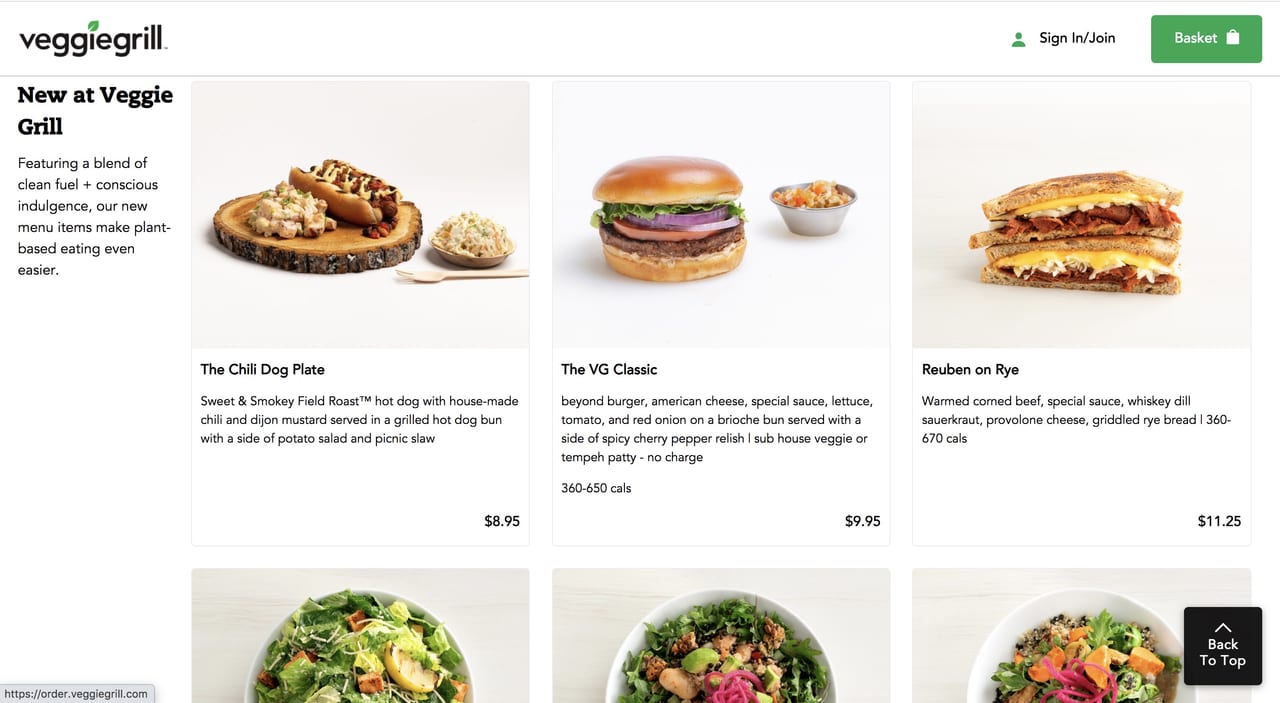
Mr. Peter from vegconomist and Mr. David from Green Monday have similar opinions.
German vegetarians and vegans have increased to 10% but still take up as a minority. On the other hand, in Germany, flexitarians are estimated to be 40 to 50%. Peter added that awareness of flexitarians is the most crucial in marketing.
Wish more companies penetrating the world from Japan
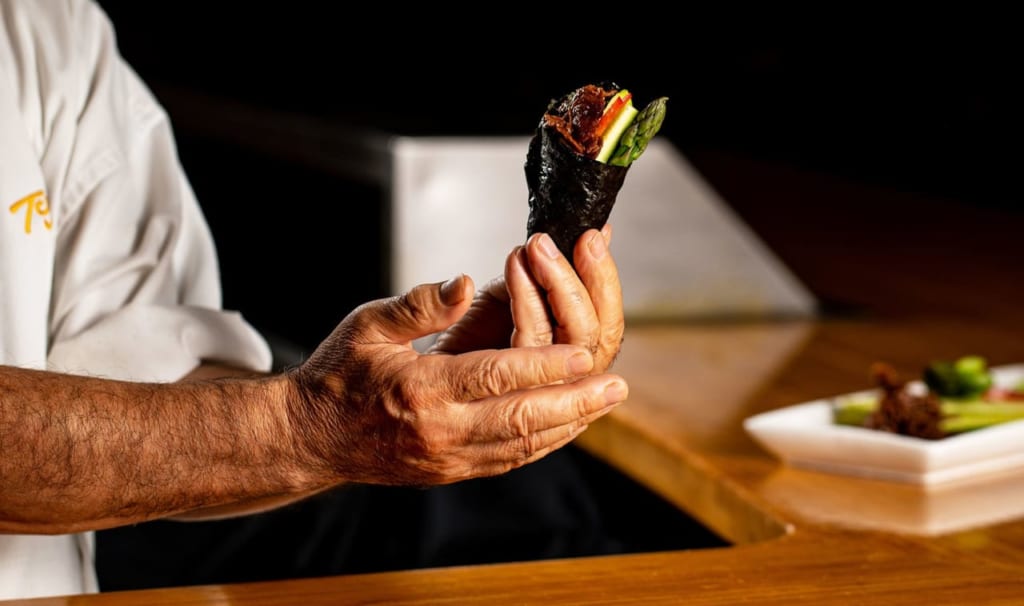
Vegan Wagyu Brand, ”Waygu” (Retrieved from Veg News)
Finally, when I asked Peter what he expected from the Japanese plant-based industry, he gave the message, “I want more companies from Japan to take on the challenge to the world.”
“I have a strong impression of seafood and Japanese beef such as Tuna and Sushi. Japan should make more use of these brands. (Peter, vegconomist)”
“I associate Japan with delicious snacks. For example, seaweed-wrapped rice crackers are popular in the United States, but so far there is little marketing in the plant-based sector. Speaking of which, matcha is another product unique to Japan which has much potential. I just bought Matcha oat milk created by Trader Joe’s, and it was pretty delicious. (Eric, HappyCow). “
Key Messages
- The global plant-based market is growing rapidly due to the pandemic.
- What is behind the market growth is the spread of “Education” and “Solution.”
- Advice for Japan is “government backup support,” “mass marketing,” and “challenge to the world.”
関連情報
◼️ Happy Cow
https://www.happycow.net/
Year of Establishment:1999
Headquater :The US.
Business Service :Vegan Restaurant Search Platform
◼️ Vegconomist
https://vegconomist.com/
Year of Establishment:2018
Headquater :Germany
Business Service :Vegan Business Magazine
◼️ Green Monday
https://greenmonday.org/
Year of Establishment:2012
Headquater :Hong Kong
Business Service :Vegan Food Product Development, Venture Capital, Food & Service Management, Railer Management etc.
